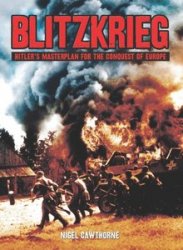(1874-1929), Austrian poet, playwright, and essayist.
Hugo von Hofmannsthal was one of the great German writers of the twentieth century and a leading figure in Austrian intellectual life from the 1890s until his death at the age of fifty-five. He was important as a lyric poet, a playwright, and an essayist, but also as a librettist and a central figure in the Salzburg Festival during the 1920s. He represents the best of an elite cultural tradition, with concerns that belong to a broadly European modernism from Charles Baudelaire to the English writers and poets of the early twentieth century. But most of his mature work aimed to connect with folk traditions and with popular history and experience, and this was especially evident in his response to World War I. A person of extraordinary grace and sensitivity, Hofmannsthal tried to make creative sense of the crises and catastrophes of the early twentieth century. His heritage was a very Austrian blend of Jewish, Catholic, Italian, bourgeois, and aristocratic. His great-grandfather was a silk manufacturer and an ennobled Jew, whose son married an Italian and converted to Catholicism. Hugo von Hofmannsthal grew up in Vienna, immersed in the high culture his father loved; even as a teenager, he was acknowledged as the epitome of poetic genius by the leading Viennese modernists, most of whom were nearly a generation older. As a young man, his pronounced aestheticism culminated in the crisis of language he described in his fictional ‘‘Letter of Lord Chandos’’ in 1902, after which his work moved strongly in an ethical and social direction.
Hofmannsthal did not produce a particularly massive body of work for a great writer, but he wrote a large number of significant works in a variety of genres over a long period of time. His genius lay in imagination, in giving form, in finding his way into other human experiences and portraying them on stage. For a long time he was regarded simply as an aesthete, or as important mainly for his lyric poetry and verse plays, but his moral and didactic concerns were apparent as early as 1893 in his lyric drama, Der Tor und der Tod (Death and the fool). The idea of the total work of art increasingly appealed to him after the turn of the century, when he began to collaborate with the composer Richard Strauss in writing operas such as Der Rosenkavalier (1910; The cavalier of the rose). In his collaborations and adaptations with Strauss and others, Hofmannsthal was motivated by his skepticism about language and his desire to blend words and music. His concern with moral themes became more pronounced in plays such as Jedermann (1911; Everyman) and Das Salzburger grosse Welttheater (1922; The Salzburg great theater of the world) as he aimed to reach a wider audience. Hofmannsthal’s emphasis on restoration and adaptation ran the risk of artificiality and loss of connection with contemporary life, and yet in Der Turm (1927; The tower) he commented perceptively on the political atmosphere of the 1920s in Central Europe, while two of his most popular plays, Der Schwierige (1921; The difficult man) and Der Unbestechliche (1923; The incorruptible), achieved a level of comedy that one is not accustomed to expect from the German stage. Hofmannsthal also produced an important body of prose, including not only essays and aphorisms, but also short narrative pieces, an unfinished novel (Andreas), and a huge published correspondence. Since World War II, scholars and critics have increasingly emphasized the connections among all his works and the continuity of his development as a writer.
Hofmannsthal increasingly identified with and took responsibility for the fate of Austria during World War I, and he came to understand politics as a part of culture, tradition, and morality. His essays from the last fifteen years of his life are remarkable pieces of writing, as well as important and influential arguments that shaped understandings of ‘‘the Austrian idea’’ and ‘‘the conservative revolution’’ in German culture. He clearly belongs in the tradition of German literature and culture, but his intellectual development was shaped in distinctive ways by his Austrian context. Michael Steinberg’s account of Hofmannsthal’s relationship to the Salzburg Festival in the 1920s emphasizes his cosmopolitan nationalism and his ‘‘conservative drive to reconstitute and render coherent a transcendent Austrian cultural identity and tradition’’ (p. xi). Hofmannsthal’s blend of a mystical sensibility and a conservative attitude brings to mind the British political theorist Edmund Burke in some respects, but for Hofmannsthal the rupture of historical continuity was not the French Revolution but World War I.
See also Austria-Hungary; Fin de Siecle; Modernism; Vienna.
BIBLIOGRAPHY
Broch, Hermann. Hugo von Hofmannsthal and His Time: The European Imagination, 1860-1920. Edited and translated by Michael P. Steinberg. Chicago, 1984.
Hofmannsthal, Hugo von. Selected Works. Vol. 1: Selected Prose. Translated by Mary Hottinger, Tania Stern, and James Stern. Introduction by Hermann Broch. New York, 1952.
-. Selected Works. Vol. 2: Poems and Verse Plays (bilingual edition). Edited by Michael Hamburger. New York, 1961.
-. Selected Works. Vol. 3: Selected Plays and Libretti.
Edited by Michael Hamburger. New York, 1963.
Kern, Peter Christoph. Zur Gedankenwelt des spaten Hofmannsthals: Die Idee einer schopferischen Restauration. Heidelberg, Germany, 1969.
Kovach, Thomas A., ed. A Companion to the Works of Hofmannsthal. Rochester, N. Y., 2002.
Steinberg, Michael P. The Meaning of the Salzburg Festival: Austria as Theater and Ideology, 1890-1938. Ithaca, N. Y., 1990.
Volke, Werner. Hugo von Hofmannsthal in Selbstzeugnissen und Bilddokumenten. Reinbek bei Hamburg, Germany, 1967.
Wunberg, Gotthart. Der fruhe Hofmannsthal: Schizophrenie als dichterische Struktur. Stuttgart, Germany, 1965.
David S. Luft




 World History
World History









